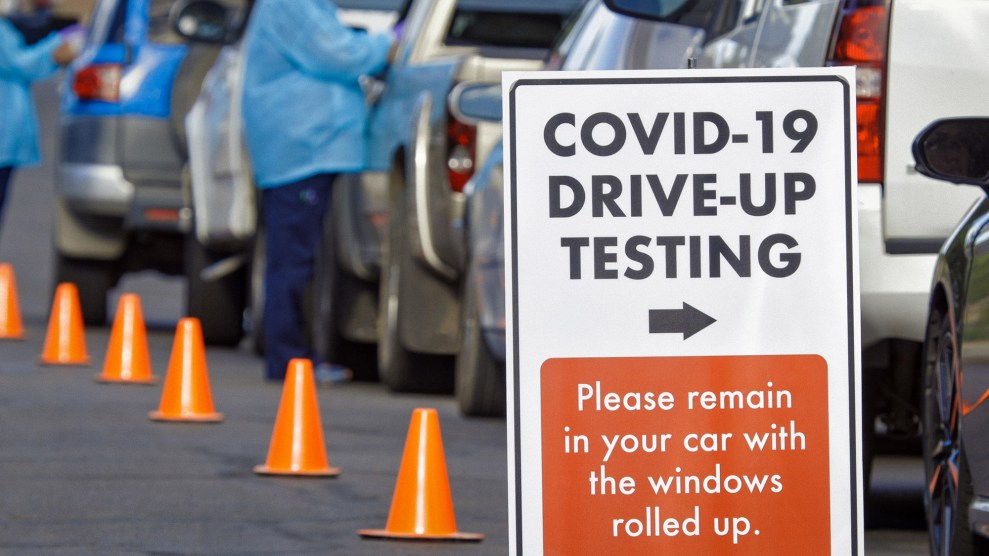It’s come to this: The maker of Lysol and Dettol has issued a statement emphatically pushing back against President Donald Trump’s stunning suggestion that injections of disinfectants could be used to treat patients infected with COVID-19.
“We must be clear that under no circumstance should our disinfectant products be administered into the human body (through injection, ingestion or any other route),” the company, Reckitt Benckiser, said on Friday. “As with all products, our disinfectant and hygiene products should only be used as intended and in line with usage guidelines.”
The statement comes hours after Trump openly mused about what he, wrongly, thought might be the potential benefits of disinfectant injections—as well as human exposure to ultraviolet light—in treating the coronavirus. “I see the disinfectant knocks it out in a minute,” Trump said at his daily coronavirus briefing on Thursday. “Is there a way we can do something like that, by injection inside or almost a cleaning? Because you see it gets in the lungs and it does a tremendous number on the lungs.”
In one camera angle, Dr. Deborah Birx, one of the top scientists on Trump’s coronavirus task force, is seen hanging her head as she takes in the president’s remarks. The apparent shock was echoed by public health experts and lawmakers who slammed Trump for, once again, spreading dangerous misinformation amid the pandemic.
Take Camera 2 pic.twitter.com/mV9oQAnExm
— Phil Williams (@NC5PhilWilliams) April 24, 2020
UV light? Injecting disinfectant?
Here’s an idea, Mr. President: more tests. Now. And protective equipment for actual medical professionals. https://t.co/Zv4Mfs2Z4a
— Joe Biden (@JoeBiden) April 24, 2020
Trump has previously come under fire for his relentless promotion of the anti-malaria drug hydroxychloroquine to cure COVID-19, despite experts warning that the treatment had yet to be proven as an effective option. But in recent days, Trump has toned down that campaign, as some recent studies have suggested that hydroxychloroquine, which can have serious side effects, may not be helping patients.

















